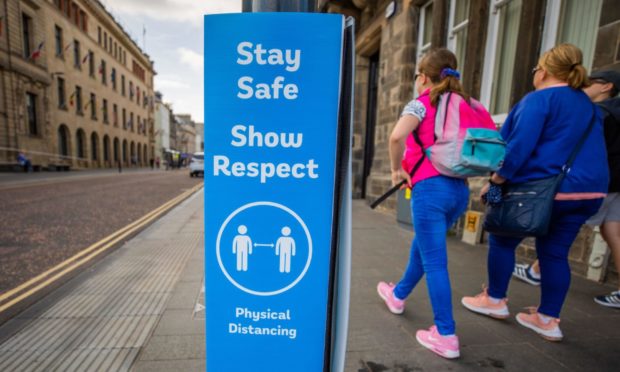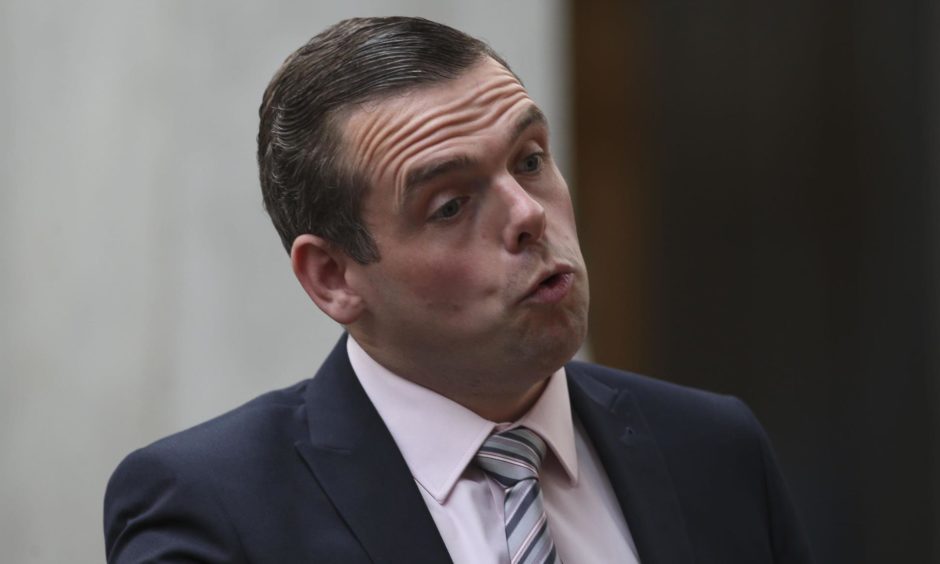Nicola Sturgeon has been accused of “cheating” businesses in north-east Scotland out of thousands of pounds after she unveiled a new five-tier alert system to guide the country’s response to coronavirus.
Ms Sturgeon outlined the first details of a new “strategic framework” that will come into force on November 2, if it is voted through by MSPs next week, and is likely to remain in place until an effective vaccine or treatment can be found.
The model consists of four tiers of measures, from level zero to level four, with restrictions ranging from just short of the nationwide lockdown implemented in March to as close to normality as possible while the virus remains a danger.
The Scottish Government hopes to keep schools and construction firms open across all tiers but levels two and three will be broadly similar to restrictions already in place in Scotland, with the harshest controls similar to those active in the central belt.
Local authorities will be assigned levels next week depending on the spread of the virus, and a range of other measures, but different towns or villages within the same council area could be told to follow different rules under the new system.
Areas in the highest tier of restrictions will be forced to shut almost all hospitality, with some restaurants able to open under strict conditions, and there will be a ban on tourism and all non-essential travel in and out of the area.
Non-essential retail will also be closed and no use of public transport will be permitted, except for essential purposes. However, six people from two households will still be able to meet outdoors, and there will be no limit on outside exercise.
Change is necessary
Announcing the framework at her daily briefing on Friday, Ms Sturgeon insisted the change is necessary to allow Scotland to live with the virus, while “striking the best balances we can” between suppressing it and minimising wider harms to society.
She said it would be unfair for people living in the Highlands to be subjected to the same restrictions as people living in Glasgow if their infection rates are much lower.
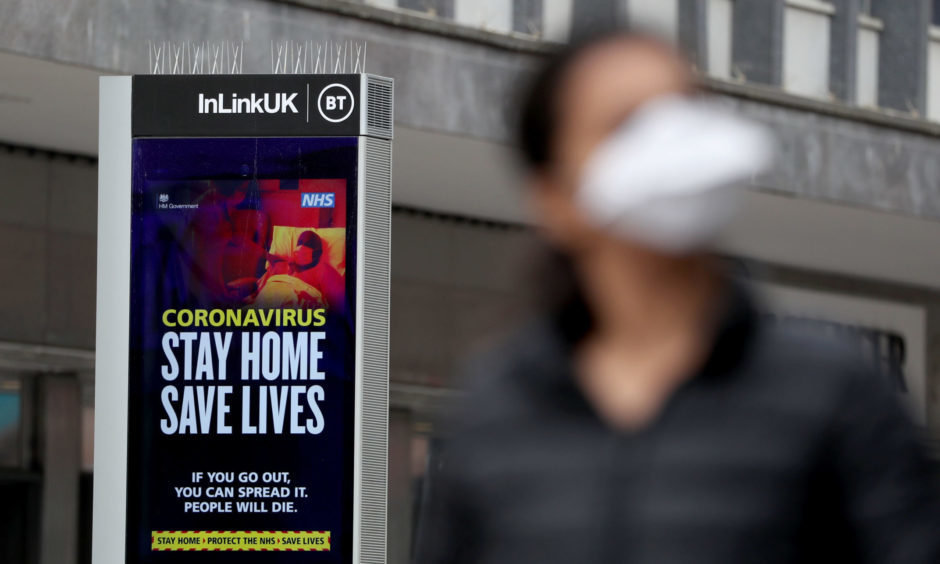
“It’s possible the whole country at some point could be placed in the same level,” Ms Sturgeon said. “But it means we don’t have to take a one-size-fits-all approach if that’s not warranted.
“A part of the country with low rates of infection won’t have to live with the same levels of restrictions as a part of the country with high rates.”
The first minister also outlined a funding support package for businesses hit by closures or restricted trading, with payments on a par with those offered in England.
Businesses will be entitled to up to £3,000 for closure or £2,100 if they face restrictions for four weeks under the new rules.
But the Scottish Government was accused of “cheating” businesses out of as much as £2,000 each after failing to set out how it would match an agreement to backdate the payments currently in place south of the border.
It’s not on that they’re being cheated out of £2,000 that businesses south of the border are receiving.
Scottish Conservative leader Douglas Ross
Businesses in Aberdeen were forced to close from August 5 to 24, meaning they would have been entitled to nearly three weeks of payments worth up to £2,035 – based on a daily rate of £107 – if they were based in England.
Scottish Conservative leader Douglas Ross said: “As this new tiered system comes into force, decisions need to be communicated without confusion and there needs to be a change of approach from the SNP if we’re going to protect Scottish jobs.
“Businesses must be consulted, crippling decisions can’t be forced on them at the last minute, and support must be available from the minute restrictions come into force.
“Protecting Scottish jobs has to be a top priority and to do that, businesses need support right now. It’s not on that they’re being cheated out of £2,000 that businesses south of the border are receiving.”
Concerns over an uncertain future
Ms Sturgeon confirmed there would be ongoing talks with opposition parties and business leaders, and said her government remained open to feedback.
But industry bosses expressed concern at the continued uncertainty many business owners face and called on the first ministers to sit down with stakeholders.
Stephen Montgomery, spokesman for the Scottish Hospitality Group, said: “The Scottish Government’s current approach is impacting on people’s lives and livelihoods with devastating consequences.
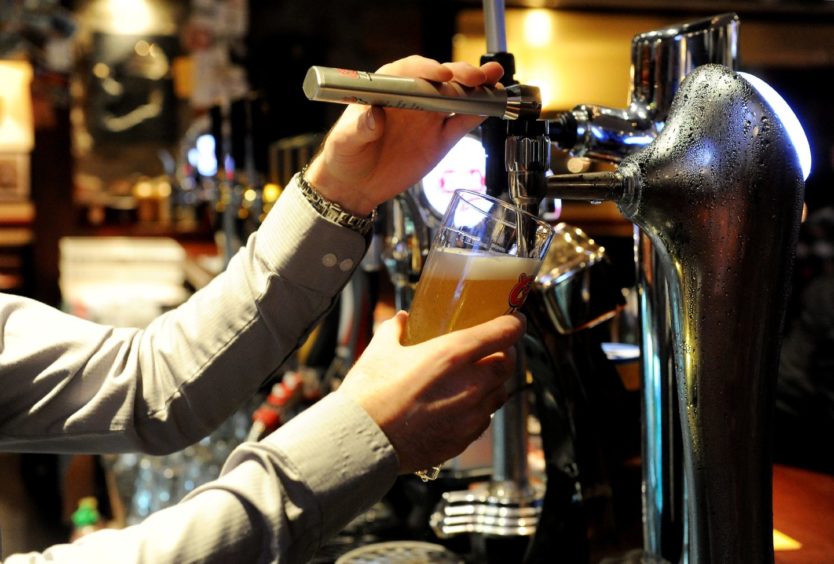
“They need to sit down and work with businesses before it is too late and save an industry that is the third biggest employer in the country.
“The new financial support package, while welcome, is the equivalent of being abandoned at sea with only a lifejacket. We cannot survive if the intention is to impose these restrictions indefinitely.”
The row came as coronavirus cases in Scotland continued to rise, with a 1,401 positive tests and a further 18 announced on Friday.
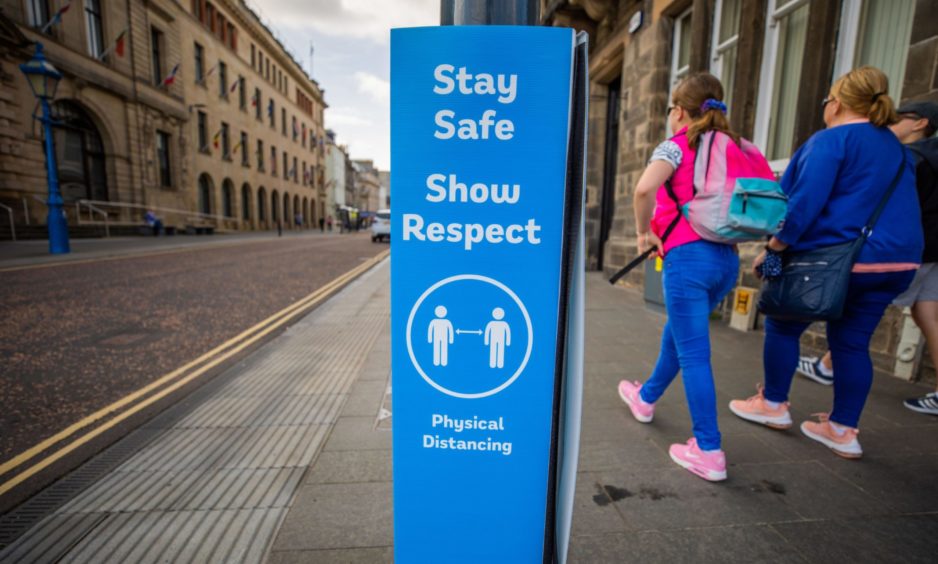
The latest figures from the Office for National Statistics suggest the virus is spreading fast in Scotland, with one in every 180 people thought to have been infected in the two weeks to October 16.
However, Ms Sturgeon said there was cause for cautious optimism in the data, with the number of new cases per day falling by 7% over the previous seven days compared to the week before, and down 29% and 52% from the two weeks before that respectively.
“Cases are still rising, which is why we cannot be complacent,” she said.
“But the rate of the increase does seem to be slowing down, which gives us grounds for some cautious optimism.”
